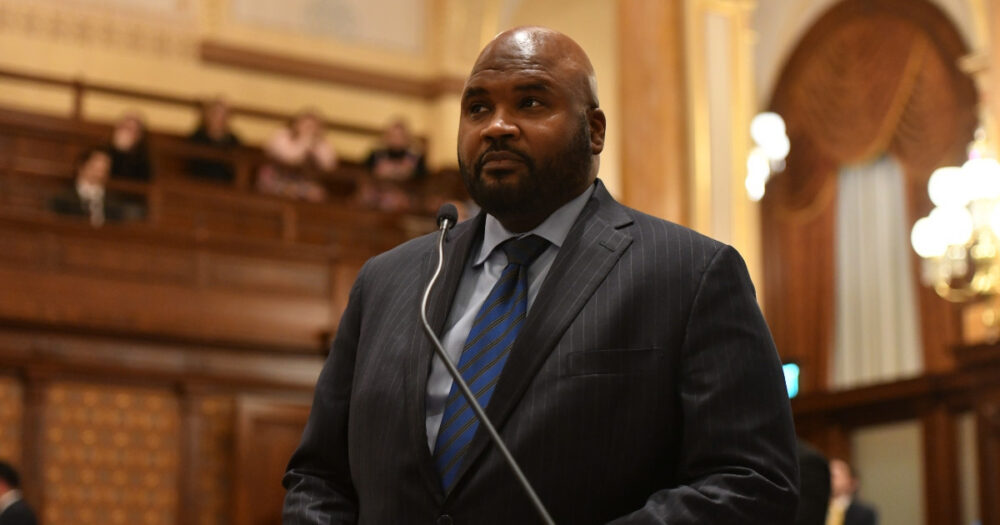WASHINGTON — Federal health officials on Thursday ordered Juul to pull its electronic cigarettes from the U.S. market, the latest blow to the embattled company widely blamed for sparking a national surge in teen vaping.
The action is part of a sweeping effort by the Food and Drug Administration to bring scientific scrutiny to the multibillion-dollar vaping industry after years of regulatory delays.
Advertisement
Parents, politicians and anti-tobacco advocates wanted a ban on the devices that many blame for the rise in underage vaping. Supporters say they can help smokers cut back on regular cigarettes.
The FDA noted that Juul may have played a “disproportionate″ role in the rise in teen vaping and its application didn’t have enough evidence to show that marketing its products “would be appropriate for the protection of the public health.”
Advertisement
The agency has granted some e-cigarette applications. Since last fall, the agency has given its OK to tobacco-flavored e-cigarettes from R.J. Reynolds, Logic and other companies.
But industry players and anti-tobacco advocates have complained that those products account for just a tiny percent of the $6 billion vaping market in the U.S.
Regulators repeatedly delayed making decisions on devices from market leaders, including Juul, which remains the best-selling vaping brand although sales have dipped.
Last year, the agency rejected applications for more than a million other e-cigarettes and related products, mainly due to their potential appeal to underage teens.
To stay on the market, companies must show that their products benefit public health. In practice, that means proving that adult smokers who use the products are likely to quit or reduce their smoking, while teens are unlikely to get hooked on them.
E-cigarettes first appeared in the U.S. more than a decade ago with the promise of providing smokers a less harmful alternative. The devices heat a nicotine solution into a vapor that’s inhaled, bypassing many of the toxic chemicals produced by burning tobacco.
But studies have reached conflicting results about whether they truly help smokers quit. And efforts by the FDA to rule on vaping products and their claims were repeatedly slowed by industry lobbying and competing political interests.
The vaping market grew to include hundreds of companies selling an array of devices and nicotine solutions in various flavors and strengths.
Advertisement
The vaping issue took on new urgency in 2018 when Juul’s high-nicotine, fruity-flavored cartridges quickly became a nationwide craze among middle and high school students. The company faces a slew of federal and state investigations into its early marketing practices, which included distributing free Juul products at concerts and parties hosted by young influencers.
In 2019, the company was pressured into halting all advertising and eliminating its fruit and dessert flavors. The next year, the FDA limited flavors in small vaping devices to just tobacco and menthol. Separately, Congress raised the purchase age for all tobacco and vaping products to 21.
But the question of whether e-cigarettes should remain on the market at all remained.
The FDA has been working under a court order to render its decisions; anti-tobacco groups successfully sued the agency to speed up its review.
FDA regulators warned companies for years they would have to submit rigorous, long-term data showing a clear benefit for smokers who switch to vaping. But all but the largest e-cigarette manufacturers have resisted conducting that kind of expensive, time-consuming research.
While Juul remains a top seller, a recent federal survey shows that teen have been shifting away from the company. Last year’s survey showed Juul was the fourth most popular e-cigarette among high schoolers who regularly vape. The most popular brand was a disposable e-cigarette called Puff Bar that comes in flavors like pink lemonade, strawberry and mango. That company’s disposable e-cigarettes had been able to skirt regulation because they use synthetic nicotine, which until recently was outside the FDA’s jurisdiction. Congress recently closed that loophole.
Advertisement
Overall, the survey showed a drop of nearly 40% in the teen vaping rate as many kids were forced to learn from home during the pandemic. Still, federal officials cautioned about interpreting the results given they were collected online for the first time, instead of in classrooms.
The brainchild of two Stanford University students, Juul launched in 2015 and within two years rocketed to the top of the vaping market. Juul, which is partially owned by tobacco giant Altria, still accounts for nearly 50% of the U.S. e-cigarette market. It once controlled more than 75%.
On Tuesday, the FDA also laid out plans to establish a maximum nicotine level for certain tobacco products to reduce their addictiveness. In that announcement, the agency also noted that it has invested in a multimedia public education campaign aimed at warning young people about the potential risks of e-cigarette use.
AP Health Writer Tom Murphy contributed to this report.







